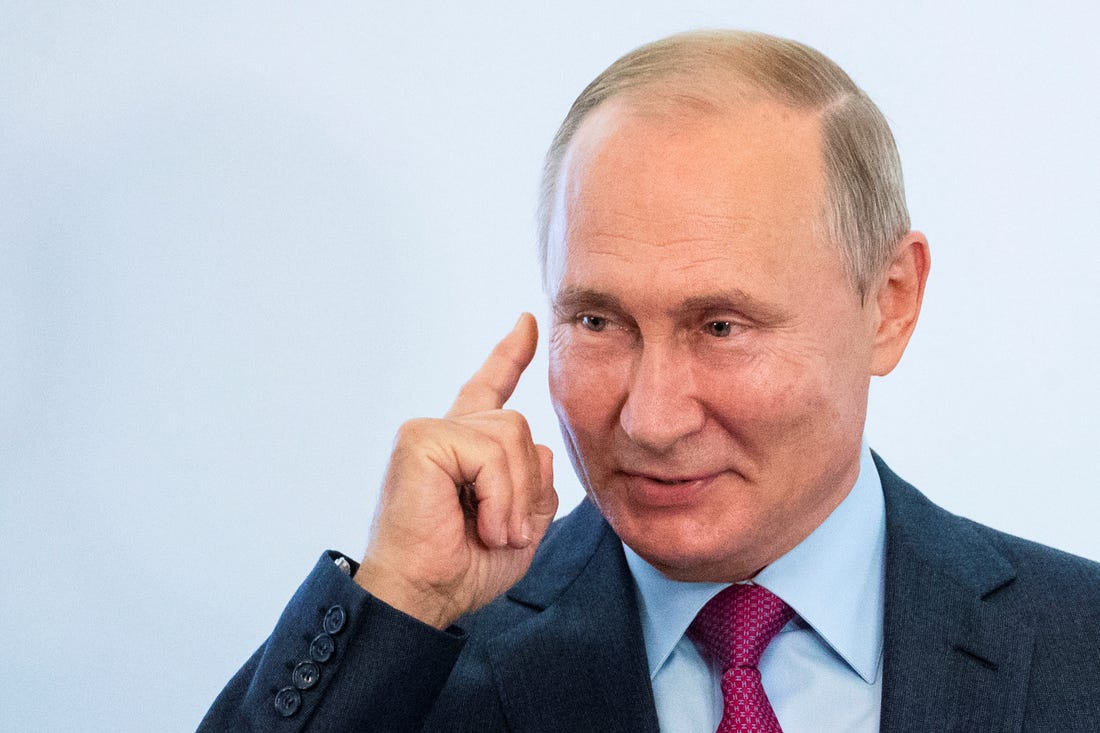In mid-November, Michael Schwirtz and Gaelle Borgia of the New York Times published a report on Russia’s efforts to install a President in Madagascar, who would be favourable to the Kremlin’s interests. Jam-packed with espionage, trolls, rucksacks stuffed with cash, precious stones and even the courting of a cult leader, the operation was a showcase in Russia’s most audacious election trickery.
At the same time, the agents undertaking the campaign were rife with comical levels of corruption and incompetence, reminiscent of the villains faced by Sean Connery in ‘From Russia With Love’. The team even switched their support to a different candidate halfway through the race after realising that they were betting on the wrong horse.
In the end, however, the Russians achieved what they set out to do: solidify their grip on a state-owned mining company and so maintain the flow of resources and profits from Madagascar to the Kremlin.
So, how are the experiences of a small African island, over 5500 miles from Leeds, relevant to the vulnerability of British democratic institutions in our upcoming elections? While their tactics were somewhat cumbersome, the Russian efforts to blatantly intervene in Madagascar’s election demonstrate the unchecked ability of large powerful states to manipulate a smaller country’s democratic institutions.
Fortunately, in the UK, bad blood and suspicions regarding Russia’s role in the past two decades of our politics have led independent experts, government agencies and intelligence services to investigate the likelihood of Russia meddling. The resulting 18-month long Intelligence and Security committee’s report landed in 10 Downing Street for its final sign off on October 17th. However, Johnson has refused to release the report to the public until after the December 12th election.
Despite condemnation from MPs, the press and the public, Johnson and his supporters have been adamant that a proper procedure is being followed, claiming that the “clearance process” takes 6 weeks. However, this rather convenient bureaucratic hurdle for the PM has been challenged by the chair of the Intelligence Committee, Dominic Grieve. Grieve, an MP who was ousted from the Tory parliamentary group because of his opposition to Johnson’s Brexit plan, argued that the clearance process for the report should only take 10 working days.
Critics have been quick to link the government’s reluctance to release the report to the damaging revelations it may hold regarding the Tory party’s own financial relationship with a wealthy, Russian-born donor class.
The allegations surrounding the influence of Russian money in the Tory party has been circling for some time now, with donations, dinners, and tennis matches being bought and paid for by Russians with fairly strange but substantial links to the Kremlin.
For example, Lubov Chernukhin, the wife of Vladimir Putin’s former finance minister, has given £1,223,774 to the Tories. This included donating £300,100 this year alone, as well as paying £160,000 at an auction to play tennis with the then PM David Cameron and London Mayor Boris Johnson in 2014. Moreover, Putin’s Judo partner and deputy in the Duma (the Russian parliament) was part of a posy of Russians invited to the Tory’s 2013 summer party by a London Lobbyist firm with an extensive set of Russian state contacts.
The Chancellor, Sajid Javid, has been quick to reject claims that any donations to the Tory party were illegal, arguing that it is the right of British citizens to participate fully in the democratic process. Moreover, Johnson has asserted that he has not seen any evidence of Russia interfering in British politics and has characterised accusations about the way in which his administration has handled the report as “complete Bermuda Triangle stuff’’.
Aside from the shovelful of sugar needed in order to swallow any of the Conservatives’ claims, I am conflicted about how to feel about this. On the one hand, the idea of Cameron and Johnson red in the face and gasping for air as they lumber after the same green tennis ball in tight white shorts is an amusing sight. On the other, it is blood boiling the way in which wealthy individuals can so easily and ‘legally’ get access to our politicians, regardless of their nationality or motivations.
Whereas Russia’s efforts in Madagascar were crude and explicit, their tactics in the UK have been shadowy and elusive. But both have succeeded in their own ways. Whatever the report details, Putin has already gained much from his international ventures. Rather than uniting the country against a common foe, allegations of Russian interference in the EU referendum have only made the debates surrounding its legitimacy more bitter and dividing.
Moreover, as pointed out by Tony Barber at the Financial Times, a win for either of the major parties on December 12th will likely serve the Kremlin’s interests. In the Tories they have a swift Brexit; in Labour, they have a NATO sceptic at its helm; and in a hung parliament, they have more of the same mind-numbing gridlock and inaction.
Image: Business Insider

